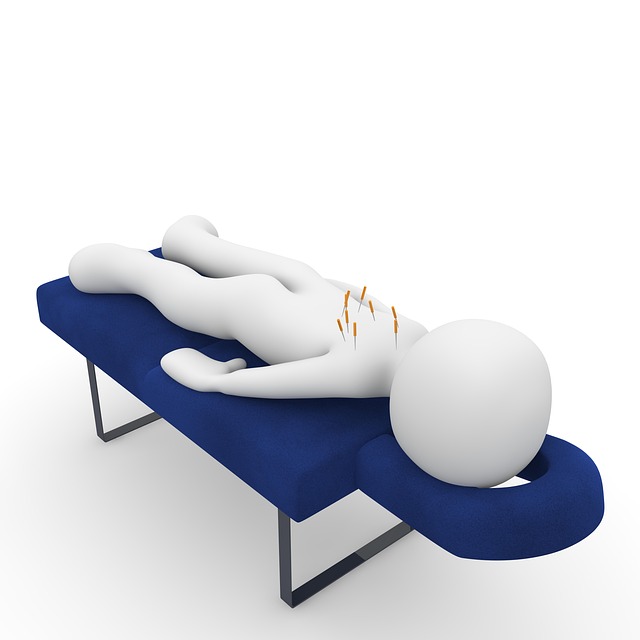Nutrition plays a pivotal role in achieving optimal health and enhancing physical performance in fitness and exercise plans. A balanced diet, rich in whole foods like fruits, vegetables, lean proteins, healthy fats, and complex carbohydrates, ensures your body receives essential nutrients for peak function. Prioritize quality over quantity with portion control, focusing on nutritious options that support muscle recovery and energy levels. Post-exercise, incorporate protein-rich foods for muscle repair and growth, while maintaining stable energy levels through consistent carb intake. Meal planning and preparation are crucial for success, allowing for efficient batch cooking and access to healthy meals throughout the week.
“Unlock your full potential with expert guidance on nutrition, fitness, and mental well-being. In today’s fast-paced world, achieving holistic wellness requires a balanced approach. This comprehensive guide delves into essential aspects of optimal health. From understanding macronutrients to crafting effective fitness and exercise plans, we provide practical tips for success. Learn how to set realistic goals, incorporate diverse exercises, manage stress, and build a supportive community that will propel you towards a healthier, happier life. Take a dive into these expert strategies and transform your mind-body connection.”
- Nutrition: Fueling Your Body for Optimal Health
- – Balanced Diet Basics
- – Macronutrients and Micronutrients: What You Need to Know
- – Meal Planning and Preparation Tips
Nutrition: Fueling Your Body for Optimal Health

Nutrition plays a pivotal role in achieving optimal health, underpinning both physical performance and mental resilience. When designing your fitness and exercise plans, consider the fuel you’re providing your body. A balanced diet rich in whole foods – fruits, vegetables, lean proteins, healthy fats, and complex carbohydrates – ensures your body gets all the essential nutrients it needs to function at its best.
Focus on quality over quantity. Portion control is crucial, but it’s equally important to fuel your workouts with nutritious options that support muscle recovery and energy levels. Incorporate protein-rich foods post-exercise to aid in muscle repair and growth, while maintaining a consistent intake of complex carbs throughout the day keeps your energy stable for sustained fitness efforts.
– Balanced Diet Basics

A balanced diet is the cornerstone of any successful fitness and exercise plan. It’s about more than just cutting out treats; it’s about fueling your body with the nutrients it needs to perform at its best. Focus on whole foods like fruits, vegetables, lean proteins, and whole grains. These provide essential vitamins, minerals, and fiber that support energy levels throughout the day and aid in recovery after workouts.
When crafting your meals, aim for variety and moderation. Incorporate a rainbow of produce to ensure you get a diverse range of nutrients, and listen to your body’s hunger cues. Balanced eating isn’t about deprivation; it’s about creating a sustainable lifestyle where food is fuel for your active life, supporting both physical performance in the gym and mental well-being.
– Macronutrients and Micronutrients: What You Need to Know

Macronutrients and micronutrients are the building blocks of a healthy diet, playing complementary roles in supporting your fitness and exercise plans. Macronutrients, consisting of carbohydrates, proteins, and fats, provide energy for your workouts and are essential for muscle repair and growth. Carbohydrates, such as whole grains and fruits, fuel your body during physical activity, while proteins from lean meats or plant-based sources aid in muscle recovery. Fats, including healthy options like avocados and nuts, support hormone production and overall well-being.
In contrast, micronutrients—vitamins and minerals—are required in smaller amounts but are no less vital. They act as catalysts for various physiological processes, including energy metabolism and immune function. Ensuring adequate intake of vitamins and minerals through a balanced diet or supplements can enhance your body’s ability to respond to exercise stress and optimize recovery, thereby complementing your fitness and exercise plans.
– Meal Planning and Preparation Tips

Meal planning and preparation are key components of any successful fitness and exercise plan. Start by assessing your daily schedule to identify pockets of time where meal prep can be incorporated efficiently. Batch cooking is a popular strategy, where you prepare large quantities of food on specific days, allowing for quick and healthy meals throughout the week. Consider preparing vegetables in advance, cooking grains or proteins in bulk, and storing them in airtight containers in your refrigerator or freezer. This approach not only saves time but also ensures you have nutritious options readily available, making it easier to stick to your fitness goals.
Additionally, customization is essential. Tailor your meal plans to align with your specific dietary needs, preferences, and fitness objectives. Incorporate a variety of whole foods, ensuring adequate protein, complex carbohydrates, healthy fats, vitamins, and minerals. Explore different cuisines and recipes to keep your meals interesting and enjoyable. With proper planning and a bit of creativity, you can make nutritious eating a sustainable part of your lifestyle, supporting both your physical and mental well-being as you progress with your fitness journey.
In conclusion, expert guidance on nutrition, fitness, and mental well-being is a cornerstone for achieving optimal health. By understanding the fundamentals of balanced diets, the importance of macronutrients and micronutrients, and implementing effective meal planning strategies, you’re well-equipped to create sustainable fitness and exercise plans tailored to your unique needs. Embrace these insights and take charge of your wellness journey today.
